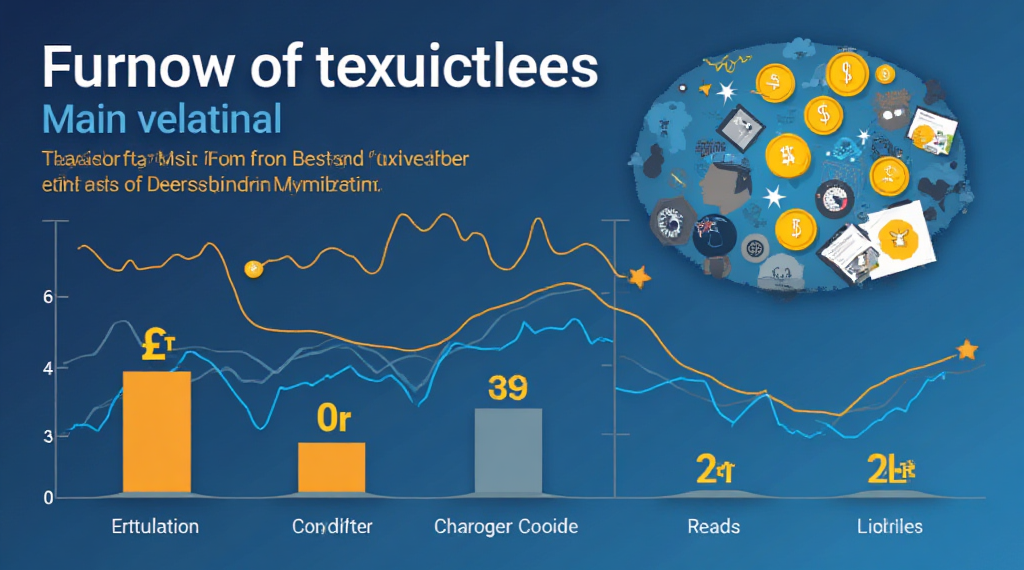<h1>Understanding Stablecoin Depegging Risks: Key Insights for 2025</h1>
<p>According to Chainalysis data, over 73% of stablecoins face depegging risks, impacting millions of investors globally. As regulatory frameworks evolve, understanding these challenges is critical for navigating the DeFi landscape in 2025.</p>
<h2>What Are Stablecoin Depegging Risks?</h2>
<p>Stablecoins aim to maintain a fixed value, usually pegged to fiat currencies. However, market volatility, liquidity issues, and lack of transparency can lead to depegging. Imagine a market vendor who promises to sell apples for a dollar each but runs out of stock and starts selling them for two dollars. This vendor‘s failure to deliver at the promised price illustrates how stablecoins can lose their value. Understanding these risks is crucial for any investor.</p>
<h2>How Do Cross–Chain Interoperability Issues Contribute to Depegging?</h2>
<p>Cross–chain interoperability can be likened to a poorly connected transportation system. If one rail line fails, it affects the whole network. The same goes for stablecoins; if a stablecoin issued on one blockchain cannot communicate with others efficiently, it could lead to liquidity issues, further risking depegging. Proper audits and protocols are essential to ensure smooth operations across different platforms.</p>
<h2>The Role of Zero–Knowledge Proofs in Enhancing Stability</h2>
<p>Consider zero–knowledge proofs as the secret recipe for ensuring every transaction is valid without revealing its details. This technology can enhance the transparency and trustworthiness of stablecoins, reducing the chances of depegging. By verifying transactions without exposing sensitive information, users can feel more secure about the stablecoins they hold.</p>
<h2>What Are the Regulatory Trends for Stablecoins in 2025?</h2>
<p>Looking towards 2025, regulatory environments, especially in places like Singapore, are shifting rapidly. Compliance measures are becoming stricter, which can protect investors but may also affect stablecoin viability. It‘s like a new law requiring food vendors to only sell certified organic produce. While this helps ensure quality, it might limit the availability of certain goods. Understanding these regulatory developments is essential for navigating potential risks.</p>
<p>In conclusion, as the landscape of stablecoins continues to evolve, being informed about <strong>stablecoin depegging risks</strong> is essential for investors. By leveraging tools like Ledger Nano X, which can help reduce the risk of private key leakage by up to 70%, users can protect themselves. For detailed strategies on managing these risks, download our toolkit today!</p>
<p>For more in–depth information, check out our <a href=“https://hibt.com/stablecoin–research“>research on stablecoins</a> and <a href=“https://hibt.com/depeg–solutions“>solutions to depegging</a>.</p>
<p class=“risk–warning“>This article does not constitute investment advice. Please consult with local regulatory authorities such as the MAS or SEC before making investment decisions.</p>
<p>Stay informed with OKHTX.</p>
<p>According to Chainalysis data, over 73% of stablecoins face depegging risks, impacting millions of investors globally. As regulatory frameworks evolve, understanding these challenges is critical for navigating the DeFi landscape in 2025.</p>
<h2>What Are Stablecoin Depegging Risks?</h2>
<p>Stablecoins aim to maintain a fixed value, usually pegged to fiat currencies. However, market volatility, liquidity issues, and lack of transparency can lead to depegging. Imagine a market vendor who promises to sell apples for a dollar each but runs out of stock and starts selling them for two dollars. This vendor‘s failure to deliver at the promised price illustrates how stablecoins can lose their value. Understanding these risks is crucial for any investor.</p>
<h2>How Do Cross–Chain Interoperability Issues Contribute to Depegging?</h2>
<p>Cross–chain interoperability can be likened to a poorly connected transportation system. If one rail line fails, it affects the whole network. The same goes for stablecoins; if a stablecoin issued on one blockchain cannot communicate with others efficiently, it could lead to liquidity issues, further risking depegging. Proper audits and protocols are essential to ensure smooth operations across different platforms.</p>
<h2>The Role of Zero–Knowledge Proofs in Enhancing Stability</h2>
<p>Consider zero–knowledge proofs as the secret recipe for ensuring every transaction is valid without revealing its details. This technology can enhance the transparency and trustworthiness of stablecoins, reducing the chances of depegging. By verifying transactions without exposing sensitive information, users can feel more secure about the stablecoins they hold.</p>
<h2>What Are the Regulatory Trends for Stablecoins in 2025?</h2>
<p>Looking towards 2025, regulatory environments, especially in places like Singapore, are shifting rapidly. Compliance measures are becoming stricter, which can protect investors but may also affect stablecoin viability. It‘s like a new law requiring food vendors to only sell certified organic produce. While this helps ensure quality, it might limit the availability of certain goods. Understanding these regulatory developments is essential for navigating potential risks.</p>
<p>In conclusion, as the landscape of stablecoins continues to evolve, being informed about <strong>stablecoin depegging risks</strong> is essential for investors. By leveraging tools like Ledger Nano X, which can help reduce the risk of private key leakage by up to 70%, users can protect themselves. For detailed strategies on managing these risks, download our toolkit today!</p>
<p>For more in–depth information, check out our <a href=“https://hibt.com/stablecoin–research“>research on stablecoins</a> and <a href=“https://hibt.com/depeg–solutions“>solutions to depegging</a>.</p>
<p class=“risk–warning“>This article does not constitute investment advice. Please consult with local regulatory authorities such as the MAS or SEC before making investment decisions.</p>
<p>Stay informed with OKHTX.</p>

















